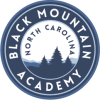Community-Based Social Skill Training
An adolescent client of mine once discovered and read a social skill training manual in my office waiting room while I was meeting with his parents.
By the time I was done with the one-hour session, this young man who happened to have Autism, was prepared to enlighten me on the best strategies for everything from starting a conversation to nailing a job interview. He even offered up some pretty sophisticated relationship advice. Initially, this particular client voiced the idea that he had read the manual, and felt as if he understood the nuances of social interactions.
However, we communicated to this young man that meaningful progress towards social skill goals cannot be achieved by reading a book. Social skills, as they say, “cannot be learned from the sidelines.”
But if social skills can’t be learned from the sidelines, what is the best way to promote them?
Social Skills need to be taught within distraction-free settings, then practiced in natural settings.
For many adolescents with Autism, social settings such as school dances, job interviews, and community outings often trigger anxiety. While it is always critical that people with autism acclimate to social settings, they often must first be exposed to social thinking skills within an emotionally and physically safe environment that is also free of distractions. Because this preparation is so critical, the program at Black Mountain Academy, a specialized boarding school, allows for extra time devoted to preparing students for the community outings that are so beneficial to their stay here.
However, it is not enough that students are afforded the opportunity to learn social skills. The most effective social skills curriculums allow students to apply the knowledge and skills they have learned within a community setting. For instance, at Black Mountain Academy our students are given instructions on how to initiate conversations with peers, and then practice such training on local outings with neurotypical peers.
Students with Social Skill needs require access to constructive feedback from highly skilled coaches, communicated within the context of a natural setting.
It is not enough that students with autism feel comfortable practicing social skills within the community. In many instances, they must also have the support of trained professionals to help them identify their strengths in a particular social interaction and then identify how to further refine their social skills in other areas. One way to do this is with immediate discrete feedback after a social interaction. For instance, at Black Mountain Academy, clinicians who specialize in treatment of autism train and supervise a highly skilled team of staff to take students on a variety of trips and discreetly offer feedback after successful and challenging social situations. This cycle of meaningful feedback and safe learning opportunities allows students to build upon prior successes, build confidence, and refine social skills with each trip into the community.
Teaching social skills cannot be done within a vacuum. Students must have support in addressing mental health, executive function, and wellness concerns that complicate or interfere with Social Interactions.
When I used to teach a dating skills class to young adults with Autism, my students always knew that they could use every skill in the book, but if they forgot to wear deodorant that day, their date might be a challenge from the start. This example highlights the reality that for many students with autism, challenges such as independent living skills, executive functioning issues, and gross motor concerns might complicate the quest for social success. As such, adolescents at Black Mountain Academy participate in a program that not only fosters social skill development, but also instills the confidence, independence, emotional regulation, and motivation to unlock a lifetime of social success.
